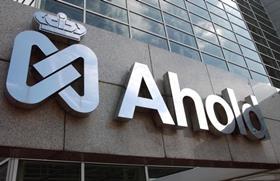
Ahold has published its Responsible Retailing Report 2014, updating stakeholders on the progress it has made during the year on what it class its five priority areas – healthy living, community well-being, our people, responsible products and care for the environment.
According to the group, Responsible Retailing is one of the six strategic pillars supporting Ahold's ambition to grow as part of its Reshaping Retail framework.
The new report offers stories from across Ahold's businesses about how associates are working towards the company's current 2015 targets.
'We want to bring our customers great value, high quality and affordable fresh products, and to do so in a responsible way,' said Ahold CEO Dick Boer. 'We cannot do this in isolation and will continue to work closely with our partners and stakeholders. I am very pleased with the progress in this area we are reporting today.'
In the healthy living category, Ahold USA piloted a new fresh produce department in 2014, offering local, exotic and organic fruits and vegetables and ready-to-eat products, supported by specially trained associates. The group noted that this concept will be rolled out to additional stores in 2015.
Meanwhile, Ahold reported that healthy products accounted for 24.4 per cent of total food sales at Ahold in 2014.
For community wellbeing, Ahold continued to support food banks through direct donations and food collection drives coordinated from its stores, its health education programmes reached over 720,000 children in the US and Europe, and the US arm was awarded Progressive Grocer's 2014 Retailer of the Year award in recognition of its community support.
In the our people category, Ahold revealed that one out of ten associates took part in healthy living programmes around the globe.
The retailer noted that, as part of responsible products, 97 per cent of Ahold's own-brand food suppliers in Europe had been certified against Global Food Safety Initiative recognised standards, compared to 94 per cent of own-brand food sales in the US.
Finally, in care for the environment, the Dutch group said that it achieved an 18.5 per cent reduction in CO2 emissions, compared to 2008, by switching to LED lighting, eco-friendly refrigerants and natural gas delivery trucks.



